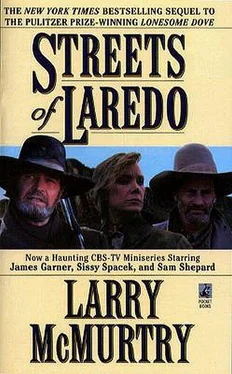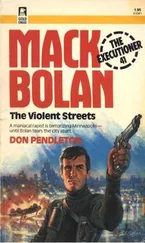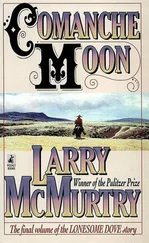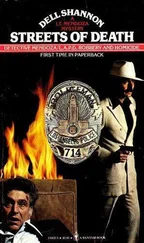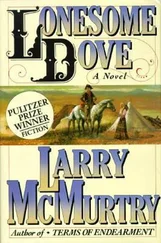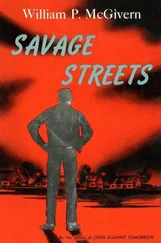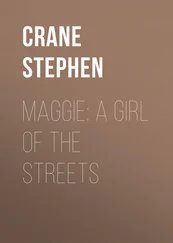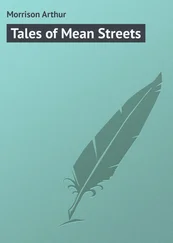In those cases, Brookshire's job was to rein in the Pinkertons. As a rule, Pinkertons were inclined to be casual about money, and the Colonel wasn't.
Employing Captain Call to catch Joey Garza was not as simple as hiring the Pinkertons to beat up a switch buster. There was only one point of similarity, which was that in both cases, the Colonel's money was being spent. And when the Colonel's money was being spent, he expected a full accounting.
"Why? Doesn't the man trust me?" Call asked, when Brookshire revealed that he was expected to accompany him.
"The Colonel don't trust God," Brookshire said. The comment just slipped out.
Colonel Terry's unwillingness to trust was not lost on any of his employees. He was constantly popping into the office to inspect their work.
When Brookshire turned in his ledgers at the end of each week, the Colonel sat right down, took out his big magnifying glass, and went over the pages line by line.
Call was inspecting a stout gray gelding that he thought might do, when Brookshire revealed that he was expected to come along. Call had just lifted the horse's foreleg, in order to inspect the hoof. He was going into rocky country and the animals would need good feet. The notion that Brookshire, a man who couldn't keep his hat on his head, was planning to go with him into Mexico had never occurred to Call. Bol, shaky as he was, would be less of an impediment. At least Bol was used to hard living, and he was Mexican.
Brookshire seemed to be a decent man, but decency was one thing, experience entirely another.
Call had no idea whether the man could even ride.
"But Mr. Brookshire," he said. "You're not equipped, and this isn't your line of work. I know you're a family man, and there is some danger involved. To be blunt, I'd rather not take you." "I'd rather not go, neither, but what choice do I have?" Brookshire asked. "I'm a salaried man. I work for Colonel Terry. He expects me to keep the daily accounts--besides that, he expects reports." "Reports?" Call asked.
"Yes, I'm expected to report," Brookshire said. It was clear from the Captain's stern look that he was not pleased with what he was hearing.
"If you capture the young Mexican, or kill him, the Colonel's going to want to know right away," Brookshire added. "He's a stickler for promptness." "I expect he's a stickler for results, too," Call said. "What if I don't catch the young bandit promptly enough? What if he manages to rob the army a few more times?" Brookshire felt uncomfortable with the question. He had not been the only one in the office to voice doubts about the Captain's age. Of course, everyone admired Call's reputation. He had undoubtedly been the best there was, once; in his prime, Joey Garza probably wouldn't have lasted a week, with the Captain in pursuit.
But now the man was old, and looked it. If Colonel Terry could see him, he would probably have taken back his offer, or at least reduced the stipend.
"I hope I'm not getting deaf," Call said. "I didn't hear you answer. What happens if I ain't quick enough?" "He'll fire you in a minute," Brookshire said.
"I'm glad you admit it," Call said.
"I'll get Joey Garza for you, but I can't say when I'll get him, and God couldn't either.
Mexico is a big place--so is West Texas. We might not be handy to a telegraph office the day the Colonel decides to fire me." "Captain, just catch the bandit," Brookshire said. "Don't worry about Colonel Terry, too much. Worrying about the Colonel is my job." "Couldn't you get another job?" Call asked. "I don't think you enjoy this one too much. This Colonel of yours sounds like he's rough on the help." Brookshire didn't deny it, but refrained from confirming it. He had learned to be cautious in remarking about the Colonel. Remarks uttered hundreds of miles from the office nonetheless had a way of reaching the man's ear.
"I like a loyal man," Call said, seeing that Brookshire had nothing to say. "I think you are a loyal man. But being loyal don't mean you're suited for this work. It's unreasonable of your boss to expect you to do work you're not trained for." "He is unreasonable, though," Brookshire said, before he could check his tongue. "He expects me to go, and I better go. I admit I ain't qualified. I'm about as unqualified a man as you could find anywhere. But here I am.
I'm expected to go." "Send the Colonel a telegram," Call suggested. "Tell him you've caught the Texas itch. Tell him the doctor says you're not to ride for six weeks." "What's the Texas itch?" Brookshire asked, wondering if he would catch it. "How do you get it?" "You just get it," Call said, amused. The man was so green it was almost painful to see. Call couldn't help thinking what a time his old friend Gus McCrae would have had with Mr. Brookshire.
Gus would have joshed him within an inch of his life.
No doubt he could have thought up diseases far more frightening than the Texas itch.
"Well, I don't want it," Brookshire said.
"I don't want to take you off and get you killed, either," Call said. "Can you shoot?" "I can point a rifle, fairly well," Brookshire said. "I learned that much in the War, but then they made me a medical orderly. I haven't pointed a rifle since." "How long since you've ridden a horse?" Call asked.
"My experience with horses is mostly limited to horse cabs," Brookshire admitted. "I may not have personally ridden a horse myself in a fair number of years.
"I did sit on a camel once," he remembered. "It was at the Hippodrome. It was the Colonel's birthday." "What's the Hippodrome?" Call asked.
"It's a show place," Brookshire said.
"Buffalo Bill has performed there--I've seen him three times. I even saw old Sitting Bull. The Colonel has met Buffalo Bill, and Sitting Bull too, I expect." Call said nothing.
"Have you met Mr. Cody?" Brookshire inquired, feeling a little uneasy. Stern as the Captain could be when he spoke, he was even more stern when he kept silent.
"I've not had the pleasure," Call said, dryly. He considered Cody a show-off and braggart. No doubt he had killed a number of buffalo, but any man with a gun and a reasonably good aim could have killed a number of buffalo back when there were millions of them. Once, while in El Paso, Call had seen a picture of some of the Indians who worked in Cody's show. The Indians were Sioux, and they were playing baseball. Call supposed, when he reflected on it, there was no reason why Sioux Indians shouldn't play baseball. What else did they have to do? There was no reason why they shouldn't be paid money to race around a ring and pretend to rob stagecoaches, either. Cody was clearly a man of some enterprise; he figured out that people who had never seen a free Indian, much less fought one, would pay money to watch such things.
There might be no harm in it, but it didn't cause him to be eager to make the acquaintance of Bill Cody, or of Sitting Bull, either.
"Anyway, the Colonel insisted that I sit on the camel and get my picture took," Brookshire said. It had been innocent enough--just a birthday party at the Hippodrome-- but Brookshire felt merely mentioning it had taken him down a notch in the Captain's estimation. He didn't suppose he had ever occupied a very high place in the Captain's estimation, but he couldn't afford to drop many more notches.
"You can't ride and you don't know whether you can shoot," the Captain said, in a tone that was not unkind. "Your hat blows off every few minutes, and the heat don't suit you. We may have to cross a desert or two, to catch Joey Garza. We may never catch up with him, and if we do he might shoot us both." "Shoot you?" Brookshire said, surprised.
"Why, I don't expect he could shoot you." "He might," Call said. "He's said to be a notable shot." "But you've got a reputation," Brookshire said. "The Colonel wouldn't have hired you, otherwise." "There's one sure thing about my reputation, Mr. Brookshire," Call said. "It won't stop a bullet. That's why I'd rather not take you with me. I don't want to take you off and get you killed." "Killed?" Brookshire said. "Why would I get killed?" It occurred to Brookshire that the heat might have affected his hearing. He had worked for the railroad for many years, but never before had the question of dying arisen. Accountants didn't get killed, not even traveling accountants such as himself. During the worst troubles in the Chicago yards, he had still rested comfortably in a hotel room at night and had even allowed himself a nip of brandy now and then.
Читать дальше
